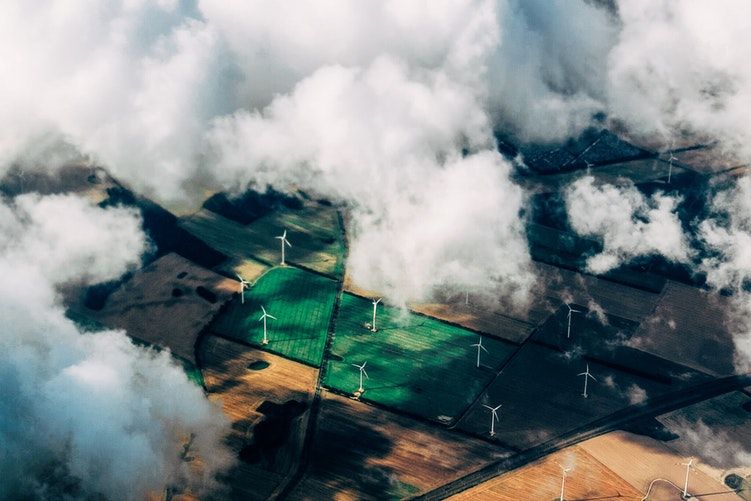Deputy travel editor Rachel Evans looks at some of the ways you can reduce the impact on the environment when travelling
Travelling is something that many of us enjoy. It’s fun, interesting, and let’s face it, means we have camera-rolls full of amazing photos. But something we often forget (or overlook) is the environmental impact that travelling has - from the huge amounts of CO2 produced by planes, to where the plastic straws in your beachside cocktails end up. With the recent news that we only have twelve years to reverse the impacts of climate change and environmental damage, I’ve tried to come up with some of the small changes you can make while travelling.
Transport
Planes are often our first option when it comes to travelling to other countries; but say that a plane cruises at an average of 780 km/h, that’s around a whopping 90 kilograms of CO2 produced per hour. The first, and most obvious, solution to this is looking into different modes of transport.
Sadly, nothing gets you to your destination quite as fast as flying, however, travelling itself can become part of the adventure. Being in Europe, we are lucky to be able to get to other countries relatively quickly via modes of transport such as train, coach, and ferry. The Eurostar offers journeys to Bruges, Lille, Brussels, Paris, and Amsterdam and you can find great deals on websites such as Eurostar Snap. Quite often it is a matter of being savvy and finding deals when websites have sales.

Epigram / Rachel Evans
If you don’t have the time to take another mode of transport, then you can find many websites where you can make carbon-offset donations, some airlines also offer them. These are basically websites that work out how much carbon you would have used on your plane ride and calculate an amount for you to donate to an eco-friendly project. Although this seems like a great idea, it has faced quite a lot of criticism, with people saying it is not enough to just pay someone to try and undo the damage for you. However, this is better than nothing and every little helps! Another top tip is to try and book non-stop journeys as it is take-offs and landings that use the most fuel.
Another small (but significant in the grand scheme of things) difference is packing light - all the extra weight in clothes you won’t wear requires more fuel to move it.
Once in the country (and the same applies at home), public transport combined with walking is the most eco-friendly way to get around. Most major cities have subways, buses, trams, and bike hiring systems in place, all of which are better than driving. These may seem daunting at first, especially when they are in a foreign language. However, they normally end up getting you there quicker than if you were stuck in a traffic jam.
Food
There’s no denying, one of the best parts about travelling is the food: streets lined with incredible restaurants, markets overflowing with fresh produce, street stalls selling all kinds of mouth-watering delicacies. As you will most likely be aware, one of the main ways we can cut emissions is through cutting back on our meat and dairy consumption, so this is always a good place to start. In some countries this may be much easier than others, but while you’re away, try eating new, vegetable-based dishes.

Unsplash / @single_lens_reflex
Another very easy tip is to eat local! Most of the time, you want to sample the local dishes anyway, and for the environment this is fantastic as it means the food hasn’t had to travel too far to end up on your plate. It also means that the food most likely comes from smaller farms and industries specific to the area instead of being mass produced.
Do a bit of research - so many places have restaurants that are trying to do their bit for the environment these days, and a quick search turns up loads of options wherever you are! While in Beijing, I found an amazing restaurant that was working to become a zero waste restaurant. They used metal straws, had schemes where you returned take-away packaging and got free food, and they also encouraged you not to order more than you could eat.
Be conscious of waste
Recently, there has been lots of videos of huge islands of waste plastic in our oceans, which are truly heartbreaking. Sadly, there are lots of countries that don’t have the infrastructure in place to cope with the huge quantities of plastic waste - particularly as a result of tourism (I saw one particular example from hotels in the Philippines), so you have to bear in mind where your plastic will end up and how to cut back on it. Small things like carrying a reusable water bottle, and a fabric bag instead of a plastic one make quite a lot of difference. The issue of plastic bottles can be particularly hard, especially in countries where tap water is not drinkable. However, sometimes there are recycling facilities available, or water bottle refills (sometimes at a small cost).
Choose where to stay carefully
I know it’s very tempting to go for the nicest looking place for the best price (especially when you’re a student), but this is often not the most eco-friendly option. Instead, look for hotels that have good waste disposal systems and recycle. Other good things to look out for are places that are energy efficient, use sustainable energy, harvest rain-water, have low-flow toilets and energy-efficient lighting. If you are staying out of the city, then sometimes eco-lodges are available, which are fantastic, both as hotels and in terms of environmental impact. Another good thing to consider is where the hotel is getting its resources. Lots of hotels invest in the local economy by using local produce (maybe even growing food themselves), hiring local people, and using local decorations for the rooms.
Be respectful of the local people and surroundings
One of the downsides of tourism is that very often the local people and area get exploited. You may have recently heard the news that Maya Bay in Thailand which was made famous by the film The Beach has been closed to tourists because of the huge negative impact on the environment, and this is not the only place where this kind of damage is happening. Be careful that the activities you are doing aren’t causing harm to the environment and wildlife. If you go on snorkelling or diving trips, then makes sure you go with a good company that protects the environment and the ocean, and when hiking make sure you stick to designated trails so as not to damage wildlife and habitats.
There are many more small steps you can take to try and rescue your impact. These all seem quite insignificant, but the Office for National Statistics reckons that there were 72.8 million visits overseas by UK residents in 2017, spending around £44.8 billion. If all these people made small changes on their holidays then the impact could be monumental.
Featured Image: Unsplash / thomasrichter









